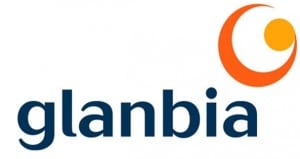
An ERP, or Enterprise Resource Planning, system is one of the most vital ICT investments an organisation will make, meaning that there are a number of key considerations when selecting an ERP system. The chosen ERP platform will unify the various functional areas of the company into a cohesive entity. It connects all areas and systems within a business. With the right platform, an ERP system will enable the seamless sharing and transference of data between departments, facilitating agile data-driven decisions to be made to allow an organisation to respond, adapt and flourish in the face of change. A well designed and functioning ERP system helps the entire organisation to work smarter by improving efficiency and visibility across all business processes.
Operating with an inadequate ERP system can be fraught with peril, the costs of which can be truly staggering. These include wasted financial investment, disruption to business functions, frustrated employees and angry customers. We’ve compiled a brief reference guide to act as a touchstone to help you to make a more informed decision when choosing to upgrade the existing ERP system in your organisation.
![]()
Must deliver platform scalability and flexibility
When selecting an ERP system, it is a mistake to base your list of requirements on where your organisation is right now. This is a static data point in time which does not reflect the dynamic nature of the modern business environment. You must plan strategically and consider where your organisation will be in the future. Do you plan for zero growth? If the answer to this question is no, you must factor in year-on-year growth as an important variable when forecasting your ERP requirements. Even with minimal/no growth, there will always be changes in the business environment, often beyond your control, which will impact upon the day-to-day processes of your business. A good ERP system will be seamlessly flexible and scalable, truly future-proofing your organisation against the challenges to come. Investment in a good ERP system represents an investment in the very foundations of your business processes, one which will serve your organisation for 5, 10, even 15+ years into the future. With this in mind, ensure that there is a future roadmap for the ERP solution that you select and ensure that upgrading to new versions with the latest features does not involve huge investment or costly re-implementation or re-engineering.
Must support a mobile workforce
Long before the Covid-19 pandemic, the days of having a workforce solely comprised of staff at workstations in fixed office locations was already a thing of the past. The pandemic has accelerated digital transformations across all industries, with a blended workforce of office-based and remote staff becoming the new norm. To maximize productivity, employers need to ensure that they support their employees with the capacity to work wherever they require. Many companies recognized the cold hard truth of this fact early in 2020 when faced with a need to facilitate work-from-home. Frustrated wrestling with archaic and uncooperative ERP systems to try and accommodate this digital switch led to significant losses as organisations struggled to pivot their operations to the new reality.
Employees who regularly operate on the road (salespeople, engineers, delivery drivers, etc.) need to have the capacity to enter data onto the ERP system on the fly. Without this functionality in place it leads to time consuming double entry of recorded data, as a hand- written record from the road and again on the ERP system when back in the office. Not only is this a waste of organisational resources, it increases the risk of mistakes occurring due to human error and is less than optimal from a data security perspective.
Recommendations and referrals
Given the weight of responsibility that falls on the capacity of the ERP system, there is a tremendous onus of responsibility on the buyer to do their due diligence. It is important that you not only investigate the software itself but also the implementation team of your chosen service provider.
- How long have they been in the ERP business?
- How capable are they at tailoring a solution to fit the individual needs of an organisation?
- Are they willing and able to provide training to your team in the use of the new software?
Ease of use
When selecting an ERP system, it is important that the software itself is user friendly to employees from all strata of the business. If the solution is difficult to use or requires too steep a learning curve there will be inevitable push-back from staff members, whereby they refuse outright to adopt to the new process or they don’t leverage the time-saving capabilities of the system to their full potential. Don’t make the mistake of requesting a demo of the solution’s capabilities after a contract has already been awarded to a given service provider; insist on a demo at the start of the evaluation process. ERP solutions that build upon the look and feel of platforms that your team are already familiar with will always have a higher rate of user buy-in across the board. Microsoft Dynamics 365 Business Central, for example, is intuitive and builds on the common Microsoft user interface and functionality that your team is already familiar with.
If you would like to learn more about how Microsoft Dynamics 365 Business Central can enhance your business, please complete the below for a free no-commitment call back from one of our experts.
Selecting an ERP System - Key Considerations
Follow us on Twitter and LinkedIn to stay updated.
Register for upcoming events
-
 "At Barretstown, we rebuild the lives of children, and their families, affected by childhood cancer and other serious illnesses. We serve 5,000 campers a year and have 1200 volunteers each year. Communication is crucially important and Datapac has helped us to streamline, improve and ensure efficiency."
"At Barretstown, we rebuild the lives of children, and their families, affected by childhood cancer and other serious illnesses. We serve 5,000 campers a year and have 1200 volunteers each year. Communication is crucially important and Datapac has helped us to streamline, improve and ensure efficiency." -
 "Datapac has provided us with a fantastic product and world-class levels of service and support. Whenever people ask me about our experience with Datapac I’m always ready to sing their praises and I would happily recommend their services to any organisation."
"Datapac has provided us with a fantastic product and world-class levels of service and support. Whenever people ask me about our experience with Datapac I’m always ready to sing their praises and I would happily recommend their services to any organisation." -
 "For many years Datapac has been our sole supplier for the maintenance of Personal Computers and Peripherals in Ireland. Through their Service Centres in Wexford and Dublin, Datapac provides excellent support to our businesses throughout the country and consistently meets the SLA targets which we have set. The skill, expertise and experience of their engineers and other technical support personnel are of the highest standard."
"For many years Datapac has been our sole supplier for the maintenance of Personal Computers and Peripherals in Ireland. Through their Service Centres in Wexford and Dublin, Datapac provides excellent support to our businesses throughout the country and consistently meets the SLA targets which we have set. The skill, expertise and experience of their engineers and other technical support personnel are of the highest standard." -
 “The value of dealing with an HP Gold partner in this process can’t be underestimated. Datapac provide us with a local touch and can cover the full range of our IT requirements, but when there is a specific technical requirement like this, they can bring the specialist technical resources of HP to the table. HP and Datapac had a thorough discussion with us around our requirement - and had really done their homework - and then were able to provide us with a very highly specified test platform for us to prove the application on before we committed to purchase.”
“The value of dealing with an HP Gold partner in this process can’t be underestimated. Datapac provide us with a local touch and can cover the full range of our IT requirements, but when there is a specific technical requirement like this, they can bring the specialist technical resources of HP to the table. HP and Datapac had a thorough discussion with us around our requirement - and had really done their homework - and then were able to provide us with a very highly specified test platform for us to prove the application on before we committed to purchase.” -
 Datapac understands our needs and requirements and has the expertise and experience to follow through on all our requests. Our constant need to reduce costs has been assisted by Datapac's ability to suggest alternative solutions and methods whilst improving both efficiency and productivity. Our partnership with Datapac is akin to having an IT department on site that we simply could not provide ourselves.
Datapac understands our needs and requirements and has the expertise and experience to follow through on all our requests. Our constant need to reduce costs has been assisted by Datapac's ability to suggest alternative solutions and methods whilst improving both efficiency and productivity. Our partnership with Datapac is akin to having an IT department on site that we simply could not provide ourselves.